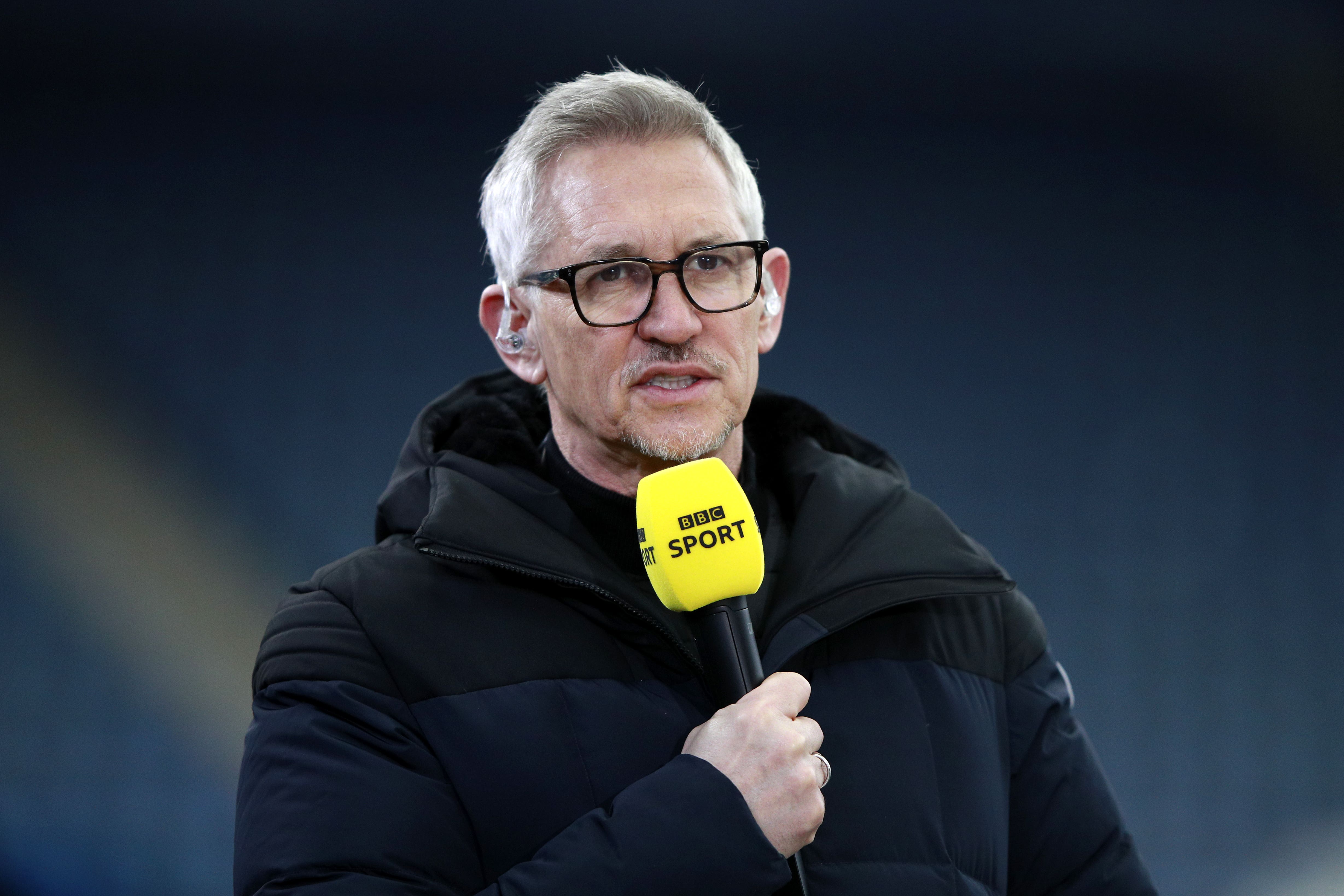The BBC is too indulgent with Gary Lineker – he’s taken their £1.4m, he should play by their rules
Some of the broadcaster’s biggest crises over the years have come through not managing presenters well, writes the former head of BBC Television News Roger Mosey


Your support helps us to tell the story
From reproductive rights to climate change to Big Tech, The Independent is on the ground when the story is developing. Whether it's investigating the financials of Elon Musk's pro-Trump PAC or producing our latest documentary, 'The A Word', which shines a light on the American women fighting for reproductive rights, we know how important it is to parse out the facts from the messaging.
At such a critical moment in US history, we need reporters on the ground. Your donation allows us to keep sending journalists to speak to both sides of the story.
The Independent is trusted by Americans across the entire political spectrum. And unlike many other quality news outlets, we choose not to lock Americans out of our reporting and analysis with paywalls. We believe quality journalism should be available to everyone, paid for by those who can afford it.
Your support makes all the difference.The BBC and Gary Lineker are in positions that seem fundamentally incompatible. The corporation says that its editorial guidelines must apply to presenters, while Lineker – as he has made plain to reporters outside his home – believes he has a right to free speech and to call out policies that he finds abhorrent.
His tweets about the home secretary Suella Braverman, and his comparison with the current debate about refugees to the language used in Nazi Germany, show a high level of passion. I know Lineker to be an intelligent and deep-thinking man, with a conscience that is to be admired; but I also think he is on the wrong side of this argument with the BBC.
The simple fact is that Lineker accepts £1.4m per annum from the BBC, funded by the licence payers of the UK, and that relationship is formalised in a contract. The editorial guidelines apply to all BBC presenters and staff.
It is true that Lineker, as a brilliant footballer and England captain, became a national figure in his own right irrespective of the BBC; they cannot be said to have created him. But his longevity in the public eye is a direct result of his BBC role – presenting a weekly programme in Match of the Day, and being the face of the World Cup, the Euro football tournaments and the London Olympics.
The BBC has bent over backwards to accommodate Lineker’s wish to speak freely on public issues. It has, arguably, been too indulgent. It was damaging to the organisation to have its best-paid presenter being a vociferous Remain advocate during the Brexit referendum, because it confirmed the view of many that the BBC was partisan on issues about the European Union.
Under the new leadership of Tim Davie there was some success in reining Lineker in, but the management still seemed nervous and reverential towards their star. The fact is that some of the BBC’s biggest crises over the years have come through not managing presenters well, and failing to make it clear that they must abide by BBC standards – as the names of Jeremy Clarkson and Jonathan Ross remind us.
This extended to an over-emphasis on how Lineker and some of his fellow presenters felt emotionally about the World Cup in Qatar when what mattered was how the BBC, and the scripts agreed by sports journalists and editors, tackled the balance of sport and politics.
The BBC cannot afford a precedent that allows its television and radio stars across all genres the right to tweet the first thing that comes into their heads when they’re watching the News at Ten.
Experienced figures in sports broadcasting, observing the current controversy, believe that Lineker fully understands the way it is unfolding. They question how much he wants to keep travelling to Salford to introduce highlights of Nottingham Forest v Bournemouth, and there has been a widespread belief that his current contract with the BBC would be his last. Making a stand on a matter of conscience might allow him to leave as a hero to many, joining Emily Maitlis as an alleged victim of BBC editorial bureaucracy.
But the BBC’s principles have been built up over generations to try to safeguard its reputation as a public broadcaster. Crucially, most of its staff abide by them – and, even though they find them chafing at times, they recognise why they’re there. This is made more challenging when the chairman of the BBC is himself the subject of controversy and is a political appointee.
The situation I predicted in The Independent when Richard Sharp decided to cling on to office has now come true: a Conservative will preside over the organisation when it decides on Lineker’s future, and critics will all too easily be able to shout “Tory plot” if the presenter is reprimanded.
The corporation has, however, no choice other than to stick firmly to its policies. Lineker, as of the morning of 9 March, is standing by his tweets. It is not easy to see how this ends with everyone satisfied.
We have got to where we are because the ambiguities and compromises of previous years have failed, and there may be yet another attempt to patch this up. But ultimately, as in a knockout match, only one side can win.
Roger Mosey is an author, broadcaster, and current master of Selwyn College, Cambridge. He was previously the head of BBC Television News
Join our commenting forum
Join thought-provoking conversations, follow other Independent readers and see their replies
Comments